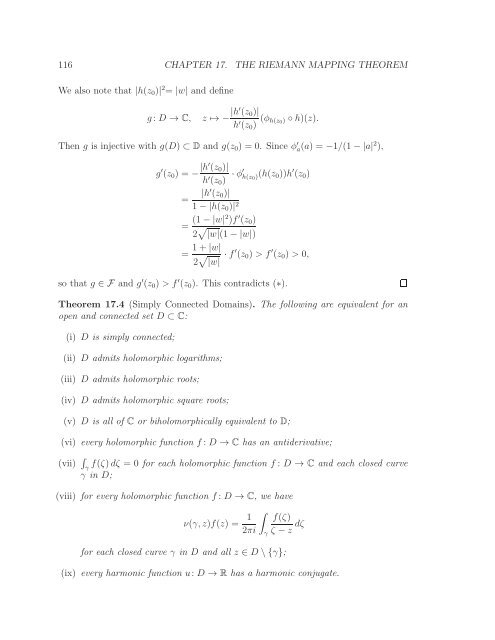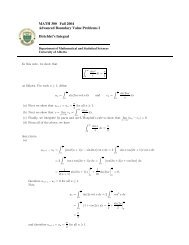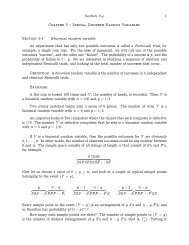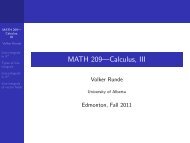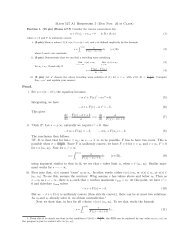Math 411: Honours Complex Variables - University of Alberta
Math 411: Honours Complex Variables - University of Alberta
Math 411: Honours Complex Variables - University of Alberta
Create successful ePaper yourself
Turn your PDF publications into a flip-book with our unique Google optimized e-Paper software.
116 CHAPTER 17. THE RIEMANN MAPPING THEOREM<br />
We also note that |h(z0)| 2 = |w| and define<br />
g: D → C, z ↦→ − |h′ (z0)|<br />
h ′ (z0) (φh(z0) ◦h)(z).<br />
Then g is injective with g(D) ⊂ D and g(z0) = 0. Since φ ′ a(a) = −1/(1−|a| 2 ),<br />
g ′ (z0) = − |h′ (z0)|<br />
h ′ (z0) ·φ′ h(z0)(h(z0))h ′ (z0)<br />
= |h′ (z0)|<br />
1−|h(z0)| 2<br />
= (1−|w|2 )f ′ (z0)<br />
2 � |w|(1−|w|)<br />
= 1+|w|<br />
2 � |w| ·f′ (z0) > f ′ (z0) > 0,<br />
so that g ∈ F and g ′ (z0) > f ′ (z0). This contradicts (∗).<br />
Theorem 17.4 (Simply Connected Domains). The following are equivalent for an<br />
open and connected set D ⊂ C:<br />
(i) D is simply connected;<br />
(ii) D admits holomorphic logarithms;<br />
(iii) D admits holomorphic roots;<br />
(iv) D admits holomorphic square roots;<br />
(v) D is all <strong>of</strong> C or biholomorphically equivalent to D;<br />
(vi) every holomorphic function f: D → C has an antiderivative;<br />
(vii) �<br />
f(ζ)dζ = 0 for each holomorphic function f : D → C and each closed curve<br />
γ<br />
γ in D;<br />
(viii) for every holomorphic function f: D → C, we have<br />
ν(γ,z)f(z) = 1<br />
�<br />
2πi γ<br />
for each closed curve γ in D and all z ∈ D \{γ};<br />
f(ζ)<br />
ζ −z dζ<br />
(ix) every harmonic function u: D → R has a harmonic conjugate.


